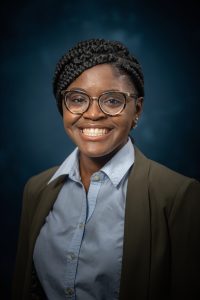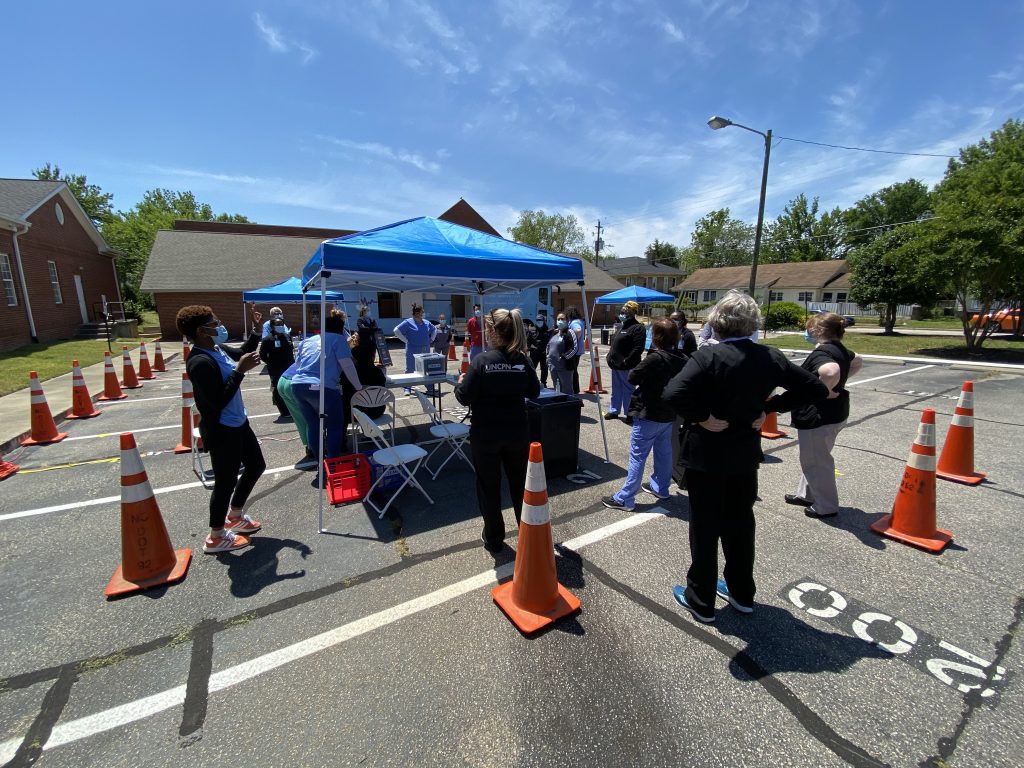UNC Health teamed with community stakeholders to create an effective mobile testing operation for COVID-19 in central North Carolina, and to offer healthcare, consultation, and resources to those most in need. Results of this project were published in NEJM Catalyst.

CHAPEL HILL, NC – In May 2020, UNC Health launched a mobile COVID-19 testing unit to underserved areas in central North Carolina. The mobile unit was successful for several reasons, the first of which being that UNC Health immediately connected with community leaders and advocates to gain valuable insights and pragmatic ideas for how to reach people most in need of convenient, accurate COVID-19 testing.
Published in the New England Journal of Medicine Catalyst, the initial results of this mobile testing program provide a framework for addressing the healthcare needs of underserved communities during the COVID-19 pandemic and beyond.
During two summer months, 1,935 people were tested with overall positive rates of 17.5% and a maximum single day positive rate of 41%. The number of people tested across the Triangle region increased each week and the list of community agencies reaching out for testing events for their organizations continued to grow. But these numbers do not tell the whole story.
UNC Health Population Health Services Manager Randi Towns, first author of the NEJM Catalyst paper, and her UNC Health Alliance team led this effort, in conjunction with the UNC Physicians Network, the UNC School of Medicine Office of Diversity, Equity and Inclusion, the UNC Center for Health Equity Research, and the UNC Health Marketing and Communications team.

To be sure this nimble testing operation was effective from the start, Towns and colleagues relied on community relationships formed over years and creating new relationships with local leaders and advocates who are trusted in their communities.
The mobile clinic was able to go to convenient locations throughout the Triangle region, eliminating the need for individuals to travel long distances or find transportation. Towns and colleagues worked closely with local community leaders to determine the most convenient hours and ideal locations for the clinic.
“We depend on these community leaders to promote our services and reach those who need it the most,” Towns said. “We often see that many in these communities don’t interact with healthcare systems because of mistrust and inequity. We may be many of these people’s first touch point with healthcare and we have to really value that. We have to do our due service and say, ‘You’re so much more than a patient – you’re a person. And we’re going to treat you like a person.’”
With an initial investment from UNC Health Foundation’s COVID-19 Response Fund, the team deployed on May 7 a UNC Health mobile clinic – a converted vascular health screening mobile trailer – to provide COVID testing, education and support services for underrepresented communities with historically limited access to care.
UNC Health partnered with organizations and community leaders, such as the Southeast Raleigh YMCA, Southeast Raleigh Promise, El Centro Hispano, El Pueblo, Wake County Human Services Office of Economic Development, Community-Campus Partnerships for Health, churches, as well as healthcare providers who were unable to offer testing to their patients.
Towns said the testing unit also met the emotional needs of the community.
“When we start every session we have a huddle where I say ‘Our core values are respect and compassion,’” Towns said. “If we can say with every patient interaction, whether it’s saying hello or listening to their concerns, that we’ve acted with compassion and respect, then we’ve done our job.”
On site, UNC Health providers always ask patients if they have food, if they have financial issues, if they have a current regime of prescribed medications. UNC providers are able to help community members find the right resources to meet those needs. The mobile clinic also provides other services to assist people in managing life during the pandemic, from coloring books for children to homemade facemasks available to every visitor. At this time more than 1,000 masks have been distributed. Visitors may also take additional masks for family members in need.
“When we originally convened and were working with community partners to understand why these communities were underserved and why COVID-19 is disproportionately affecting minority populations, we knew that it wouldn’t be enough to provide testing alone,” Towns said. “We’ve been really intentional in building a holistic project, asking ourselves ‘What is the most we can do?’”
Aside from Towns, authors of the NEJM Catalyst report are Giselle Corbie-Smith, MD, MSc, director of UNC CHER and the Kenan Distinguished Professor of Social Medicine and Internal Medicine; Al Richmond, MSW, executive director of Community-Campus Partnerships for Health; Mark Gwynne, DO, president and executive Medical Director UNC Health Alliance and associate professor Department of Family Medicine; and Lynne Fiscus, MD, MPH, president and CEO of the UNC Physicians Network.
Media contact: Mark Derewicz, 919-923-0959